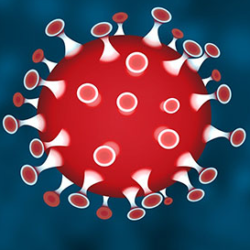Dieser Frage wird sich die Charité im Zusammenhang mit Drostens "Kinderstudie" stellen müssen. Markus Kühbacher hat folgende Fragen an D.'s Arbeitgeber gerichtet:
»Sehr geehrte Damen und Herren,
Bezug nehmend auf die bei Ihnen an der Charité durchgeführte Studie aus dem Frühjahr 2020, deren Ergebnisse auf einem Ihrer Server unter dem Titel "An analysis of SARS-CoV‑2 viral load by patient age"* veröffentlicht worden ist, bitte ich um Beantwortung der folgenden Fragen:
1. Wer war der Leiter dieser Studie?
2. Wann hat der Studienleiter einen Antrag auf Zustimmung zu seinem Forschungsprotokoll gemäß Punkt 23 i. V. m. den Punkten 1, 2 und 22 der Deklaration von Helsinki bei der hierfür zuständigen Ethikkommission der Charité gestellt?
3. Wann wurde dieser Ethikantrag genehmigt?
4. In welcher öffentlich zugänglichen Datenbank wurde die Studie gemäß Punkt 35 der Deklaration von Helsinki registriert?
5. Wurde die Studie inzwischen in einem wissenschaftlichen Journal veröffentlicht?
Auszug aus der "WMA DECLARATION OF HELSINKI – ETHICAL PRINCIPLES FOR MEDICAL RESEARCH INVOLVING HUMAN SUBJECTS":
„1. The World Medical Association (WMA) has developed the Declaration of Helsinki as a statement of ethical principles for medical research involving human subjects, including research on identifiable human material and data.
The Declaration is intended to be read as a whole and each of its constituent paragraphs should be applied with consideration of all other relevant paragraphs.
2. Consistent with the mandate of the WMA, the Declaration is addressed primarily to physicians. The WMA encourages others who are involved in medical research involving human subjects to adopt these principles.
[…]
22. The design and performance of each research study involving human subjects must be clearly described and justified in a research protocol
The protocol should contain a statement of the ethical considerations involved and should indicate how the principles in this Declaration have been addressed. The protocol should include information regarding funding, sponsors, institutional affiliations, potential conflicts of interest, incentives for subjects and information regarding provisions for treating and/or compensating subjects who are harmed as a consequence of participation in the research study.
In clinical trials, the protocol must also describe appropriate arrangements for post-trial provisions.
23. The research protocol must be submitted for consideration, comment, guidance and approval to the concerned research ethics committee before the study begins. This committee must be transparent in its functioning, must be independent of the researcher, the sponsor and any other undue influence and must be duly qualified. It must take into consideration the laws and regulations of the country or countries in which the research is to be performed as well as applicable international norms and standards but these must not be allowed to reduce or eliminate any of the protections for research subjects set forth in this Declaration.
The committee must have the right to monitor ongoing studies. The researcher must provide monitoring information to the committee, especially information about any serious adverse events. No amendment to the protocol may be made without consideration and approval by the committee. After the end of the study, the researchers must submit a final report to the committee containing a summary of the study’s findings and conclusions.
[…]
35. Every research study involving human subjects must be registered in a publicly accessible database before recruitment of the first subject.”
Mit freundlichen Grüßen
Markus Kühbacher«

Danke!
Ja, Herr Kühbacher ist ein Schatz. Nicht jeder ist fähig und bereit, sich mit so einer Jauchegrube tiefschürfend zu befassen. Ich könnte es nicht – vor lauter Ekel.
Und ich sage das mit so einer Emotion, weil mir diese Leute, die Kinder misshandeln, von ihren Familien wegnehmen, verängstigen, traumatisieren, überfallen, gegen deren Willen "testen" oder gar impfen, also schlichte Gewalt antun, vergewaltigen, oder mit ihnen rumexperimentieren, Kotzreize verursachen.
Diese ganze "Corona-Blase", von Gates herunter bis zum kleinen Gesundheitsamts-Vollstrecker, sind Unmenschen und gehören von jeglicher Einflussmöglichkeit und Macht entfernt.
Man könnte sie vielleicht auf eine eigene Insel absetzen, wenn sie dermaßen Angst vor ihren Mitmenschen und deren angeblich Ansteckungsgefahr haben.
wtf?!